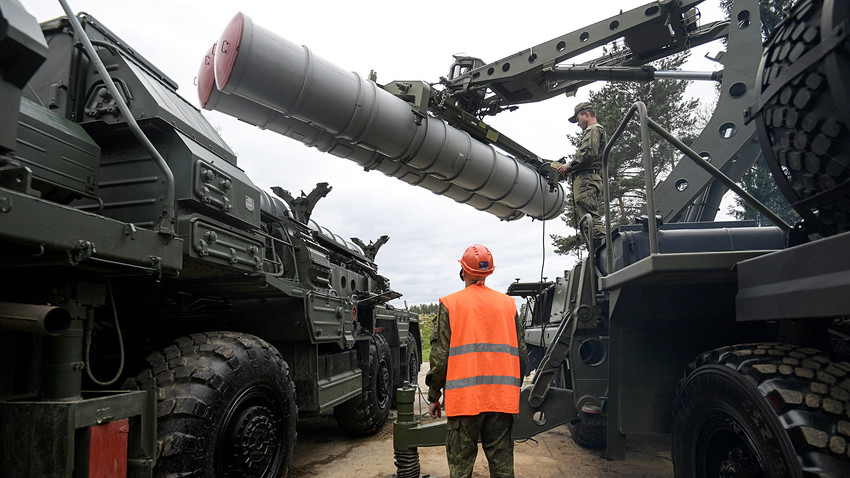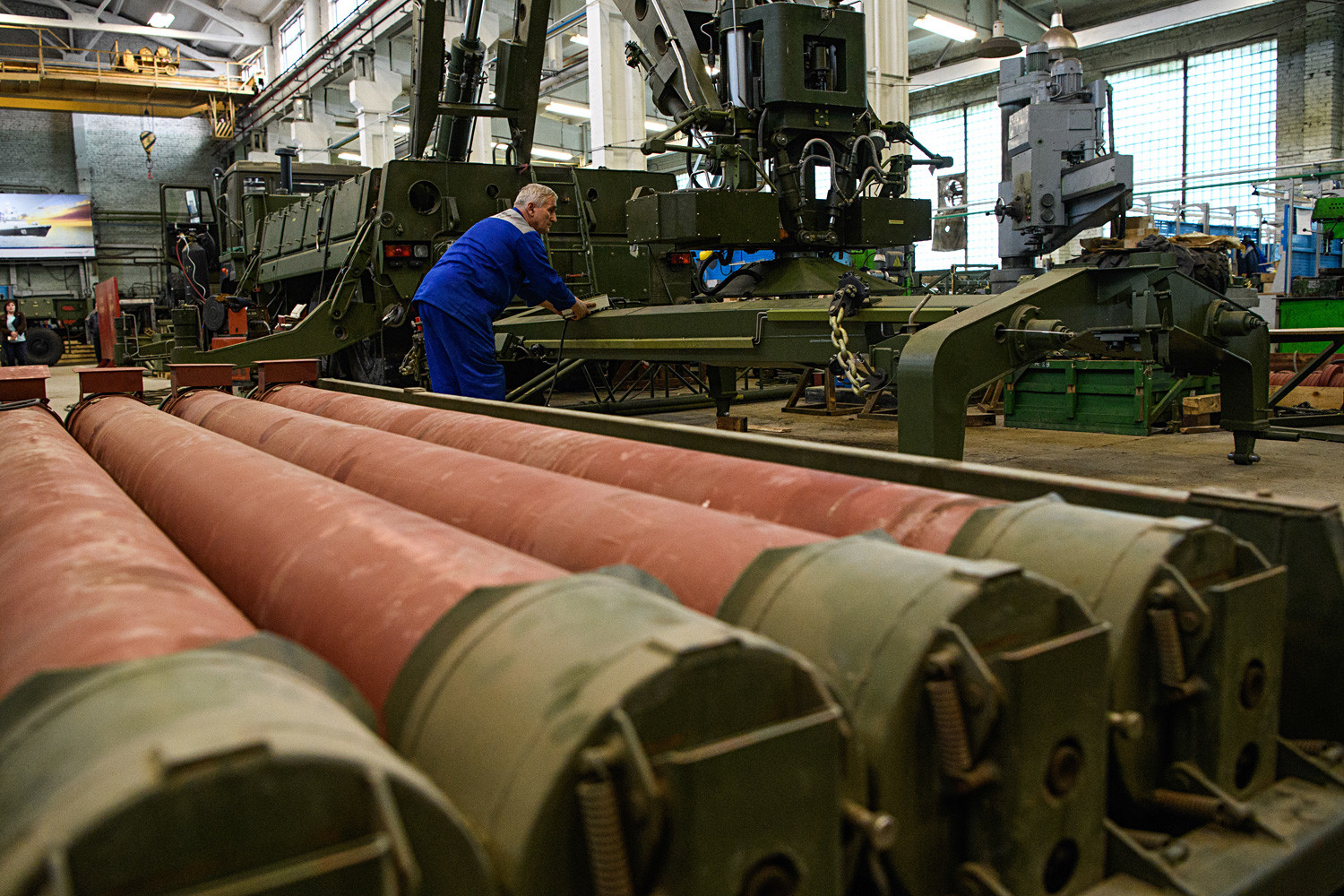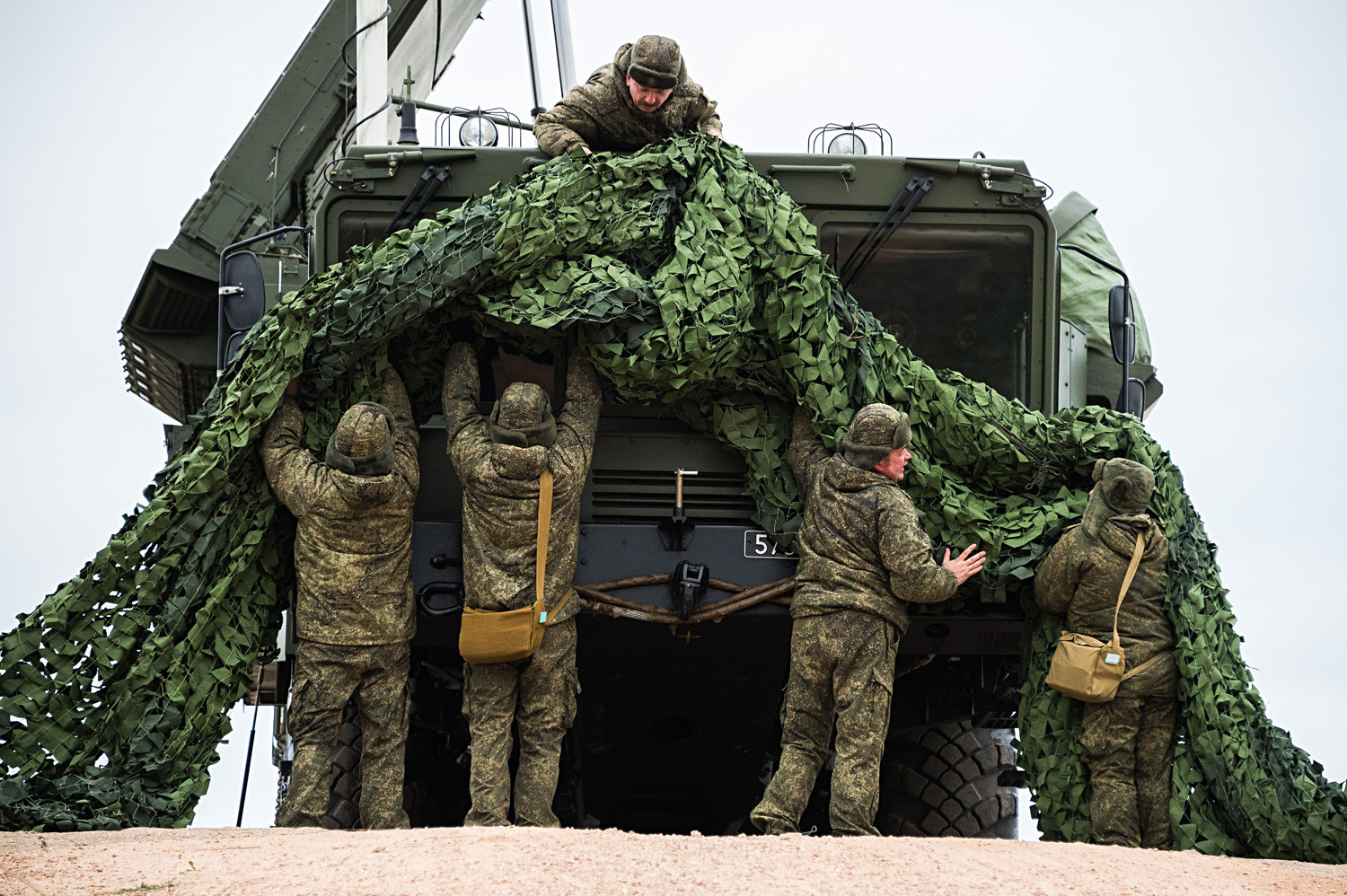Which Russian S-400 air defense secrets will NATO receive for $2.5 billion?

Recharging an S-400 Triumf anti-aircraft weapon system during the combat duty drills of the surface to air-missile regiment in the Moscow Region
Grigoriy Sisoev/SputnikTurkey has bought two units of the world’s most advanced air defense system, the Triumph S-400. Up until
On April 4, during a meeting between Vladimir Putin and Recep Erdogan, it was revealed that the contract is worth $2.5 billion and that Russia will start supplying Turkey with the anti-missile systems from July next year.
What was sold?

Assembling a charging machine for S-300 and S-400 Triumf anti-aircraft missile systems at the 'Start' Research and Production Enterprise.
Donat Sorokin/TASSEach battery includes four launching installations with four missiles each. Therefore, in total, each battery has 16 missiles that are capable of shooting down 5th generation fighters and cruise missiles at a distance of 200 km.
And this is not taking into account the reserve combat set that is also included in the contract and will be located on the battlefield. Moreover, the contract includes transport charging machines, radar stations, a command post, and a series of support vehicles.
At the same time, Turkish gunners who will work these systems will receive training in Russia.
Russia has also agreed to give a part of the technology to its partner Turkey, which is a NATO
Head of the Rosoboronexport Press Office - Vyacheslav Davydenko - told Russia Beyond that the details of the contract are completely confidential.
“The first S-400 system machines will arrive in Turkey in the middle of 2019. There is little time because we agreed to reduce the delivery time and send the first shipment next year. By this time, unfortunately, it will be impossible to open the plant. We will most likely give a part of the production to our partners
In his words, the part of the S-400 technology that Russia will give Turkey is a matter of the countries’ bilateral relations. “This will be decided not only on a commercial level between the producer and the
The secrets Russia is not willing to share

The S-400 Triumf anti-air missile system enters service in Sevastopol to protect Russian air borders. The second S-400 missile system unit deployed on Cape Fiolent in Sevastopol will ensure the protection of Crimea and a considerable part of the Krasnodar Territory
Alexey Malgavko/SputnikIn the opinion of TASS military analyst Victor Litovkin, Russia is willing to open several small enterprises in Turkey that will produce components and small electronics for the S-400s. But Moscow will not share the system’s biggest secrets.
“We will not give them the ‘filling,’ as well as the systems’ electronic codes. Large-scale technical maintenance will be done in Russia at the Almaz-Anteya factory,” added Litovkin.
The access codes and the “filling” that Russia is not willing to reveal primarily concern the air “friend or foe” detection systems.
“This will be a Russian-made system. We will not reveal the passwords and we will not allow anyone to reprogram it,” noted the analyst.
The missiles for the systems will also be produced in Russia, from where Turkey will buy them.
“Opening such production is costly and time-consuming. Furthermore, Russian leaders may not be willing to share some of their most treasured secrets concerning the creation of missiles that today are considered the best in the world,” Litovkin summed up.
If using any of Russia Beyond's content, partly or in full, always provide an active hyperlink to the original material.
Subscribe
to our newsletter!
Get the week's best stories straight to your inbox